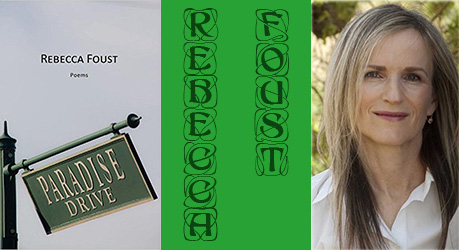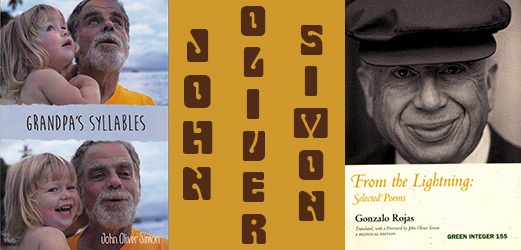All That Gorgeous Pitiless Song won the Many Mountains Moving Book Prize and was released in 2010, the same year that God, Seed: Poetry & Art About the Natural World, won the Foreword Review Book of the Year Award for Poetry. Mom’s Canoeand Dark Card, recipients of the Robert Phillips Chapbook Poetry Prize in consecutive years, were released by Texas Review Press in 2008 and 2009.
She was the 2014 Dartmouth Poet in Residence at the Frost Place and recipient of a MacDowell Colony residence award. My work appears widely in journals including The Hudson Review, North American Review, Massachsetts Review, Notre Dame Review, Sewanee Review, Smartish Pace, Woman’s Review of Books, Zyzzyva, and others, and has been featured on Poetry Daily, Verse Daily and in The South Carolina Review. Essays, book reviews and fiction are published in American Book Review, Calyx, Chautauqua Journal, Prairie Schooner,Rumpus Daily and elsewhere. Besides writing, I teach, organize poetry events, read for the Northern California Book Award, serve on the Board of the Marin Poetry Center, and work as an Assistant Editor in fiction for Narrative Magazine.
each Magritte heart bent
off the vertical axis
sad valentines
posted to a wounded world
sorrow the stone in my side
you my child leave
no thorn unturned
what I know of dwarf stars
is what swallows your eyes when
you look into my face
you still look away is it fear for
me or of me—
such dense collapsed darkness—
like crepe paper
and school paste these hearts
melt in the rain
John Oliver Simon, one of the legendary poets of the Berkeley Sixties, has remained true to his calling.
A fifth-generation Californian born in New York City in 1942, he wrote his first poem under a full moon in 1956. Educated at The Putney School, Swarthmore College, and the University of California Berkeley, Simon was mentored by John C. Adler, Jeffrey Campbell, Daniel Hoffman, Gary Snyder, Lew Welch and Carol Lee Sanchez.
While at Cal and after, he was active in the Free Speech Movement and in the famous struggle to liberate Berkeley’s People’s Park.
As an educator, Simon has devoted himself to teaching children to write poetry. He is a board member of California Poets in the Schools. In 2013, he was named the River of Words Teacher of the Year by former US Poet Laureate Robert Hass
On January 20, 2015, Simon’s contributions to the Bay Area writing and educational community he was honored when the mayor of Berkeley proclaims “John Oliver Simon Day.” The ceremony will take place at 7:30 p.m. in City Council Chambers at Berkeley City Hall.
Simon is also a noted translator specializing in contemporary Latin American poetry. His cultural reporting has been featured in Poetry Flash and American Poetry Review.
In 1989 Simon was awarded an Individual Artist’s Fellowship by the California Arts Council. He also received an NEA Fellowship in Translation for his work with the great Chilean surrealist poet Gonzalo Rojas (1917-2011).
Stelae
There are stelae at Palenque
that are nothing but names and numbers.
Home runs, strikeouts and stolen bases
for Hunahpú and Hunahpú
who played the sacred game back when
you had to claw for every run
not like today. The losing manager
got disembowelled on the mound
by the knife of the morning star.
I grow older, hombre, or the beardless
mozos striding to the plate grow young.
At 41 I played in Jalatlaco,
place-name meaning “sandy ballcourt.”
The Zapotec lefty decked me.
¿Cómo se dice beanball en español?
And then for once in my mortal
vagabond middle-infielder’s career
I got good wood on the pelota,
it sailed toward the sacred ring,
reached the ancient wall on one bounce.
Hunahpú and Hunahpú
played ball against the gods
in Xibalbá. They lost.
They got their heads cut off
and turned them into baseballs
and stuck them on a tree.
A girl ate them. She had babies:
Hunahpú and Hunahpú.
They finished second two years running.
They smoked the candles of the underworld,
came back to challenge in the playoffs.
They used a mosquito in center field
to steal signs. They stole them blind.
They sacrificed, they had the long ball,
they had defensive magic. They threw
the change, they threw the split-finger.
You remember the sequence from Game Six.
The Mayans carved the standings
into limestone. Learn to interpret
the statistics of heaven,
these cyclic fractals of the endless game.






